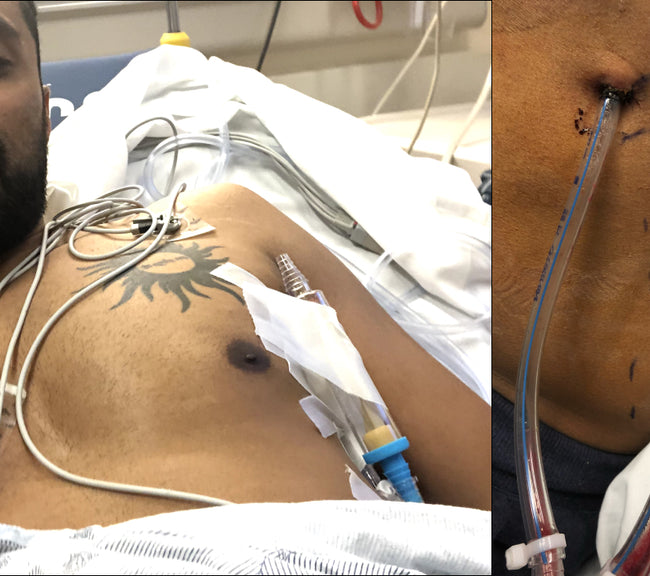Popping vitamin pills left and right has become a trend. While vitamin supplements are good, knowing when and what to take is equally important. B12 is among the most essential vitamins. Vitamin B12 has several important bodily functions, such as producing red blood cells and keeping the nervous system healthy. It is a water-soluble vitamin mostly found in animal-based foods - meat, dairy products, eggs, and fish. Vitamin B12 deficiency leads to a range of symptoms, from subtle to moderate, in the early stages. If not treated, it can progressively worsen and lead to health complications. Therefore, recognizing the early signs of B12 deficiency and knowing when to seek medical help is crucial to maintaining good health. In this blog, we explore the symptoms of vitamin b12 deficiency. We also shed light on why it's essential to address them sooner rather than later.
What is Vitamin B12 and Why is it Important?
Also known as cobalamin, vitamin B12 cannot be produced naturally in the body and is water-soluble. It needs to be obtained from your diet or supplements. Vitamin B12 is important for nerve functioning, the production of red blood cells, and the synthesis of DNA. It is also involved in converting food into energy and mood regulations. Deficiency in vitamin B12 interferes with many essential functions of the body.
8 Signs You Aren’t Getting Enough Vitamin B12
The signs and symptoms of vitamin B12 deficiency often occur gradually. Many people do not realize they have a deficiency until it becomes severe. Knowing the early signs of B12 deficiency helps you avoid health repercussions. Common symptoms are listed below:
- Fatigue and Weakness: One of the most common B12 deficiency symptoms in adults is fatigue. Vitamin B12 is important for red blood cell production. A lack of red blood cells causes anemia, which leads to fatigue and lethargy. If you are tired in the morning even after a good night's sleep, this might be due to a lack of vitamin B12.
- Pale or Jaundiced Skin: Pale or yellowish-colored jaundiced skin is the direct effect of anemia. If you have noticed changes in your skin color, it is important to check your vitamin B12 levels to check for a deficiency.
- Tingling or Numbness in the Hands and Feet: Another sign of low vitamin B12 is tingling or numbness in the hands and feet. If you are low in B12, the nerves will begin to deteriorate, potentially resulting in peripheral neuropathy. This condition can cause sharp tingling sensations or feelings similar to being poked by needles. If left untreated, nerve damage can become permanent.
- Difficulty Walking or Balance Issues: Having difficulty walking, balancing, or frequent falls could all be signs of vitamin B12 deficiency. Given that B12 is crucial for nerve function, a deficiency can damage the nervous system, leading to movement and coordination issues.
- Mental Health Issues: Vitamin B12 deficiency can lead to mental health issues, including irritability, mood swings, anxiety, depression, and difficulty concentrating. If you’ve been feeling mentally foggy or "off," it might be a sign of B12 deficiency.
- Breathing Difficulty and Light-headedness: A vitamin B12 deficiency can make it hard for your body to produce enough healthy red blood cells, leading to issues with oxygen transport. This can cause breathing problems and frequent lightheadedness or fainting, particularly during physical exertion.
- Glossitis and Mouth Ulcers: Glossitis (inflammation of the tongue) and mouth ulcers are common early signs of B12 deficiency. The tongue may become swollen and turn a dull red color, while mouth sores can cause pain. These occur because B12 helps maintain healthy mucous membranes and tissues in the mouth.
- Vision Problems: In rare cases, a vitamin B12 deficiency can cause blurred or double vision. This is due to damage to the optic nerve (optic neuropathy). If untreated, this can permanently impair vision.
Natural Remedies for B12 Deficiency
If you develop any of these early signs of B12 deficiency, it’s important to consult with your doctor. A simple blood test can determine if your vitamin B12 levels are low. If diagnosed, your doctor will likely recommend supplements or injections, depending on the severity of the deficiency.
Sometimes, adjusting your diet can help meet your B12 requirements. Here are some common vitamin B12-rich foods:
- Meat
- Poultry
- Fish
- Eggs
- Dairy Products
- Fortified Cereals
Conclusion
If you are unfamiliar, vitamin B12 is one of the key vitamins for maintaining overall health. Learning early signs of B12 deficiency can be beneficial for warding off serious health concerns. Fatigue, paleness of skin, tingling in the fingers, and mental health issues are all associated with B12 deficiency. Symptoms can show up in multiple ways. If some of these warning signs sound eerily familiar, do not shrug any further. Seek help early to prevent irreversible damage due to low B12 levels. You must regularly check for B12 deficiencies if you follow a vegan lifestyle. While going for a blood test might sound like a drag, it is always in your best interest to do so.

































